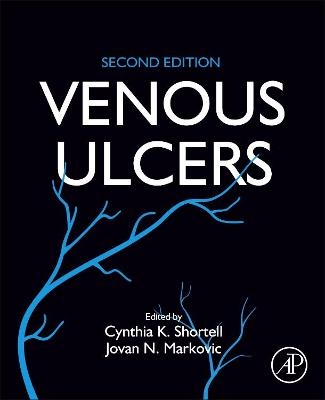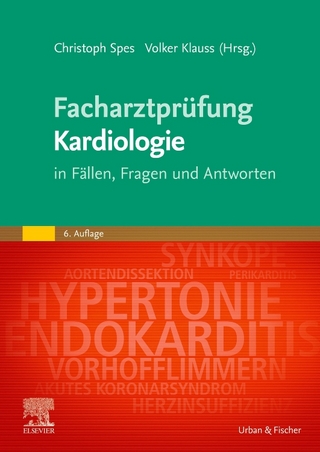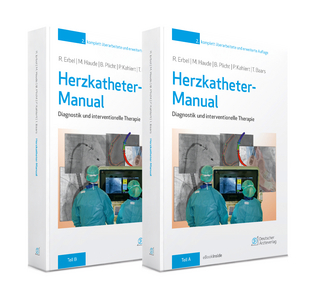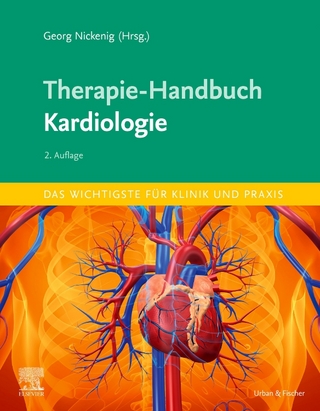
Venous Ulcers
Academic Press Inc (Verlag)
978-0-323-90610-4 (ISBN)
Dr. Cynthia K. Shortell is a Professor of Surgery, Chief of Vascular and Endovascular Surgery, and Executive Vice Chair for the Department of Surgery at Duke University Medical Center. With Dr. John Bergan, Dr. Shortell was an editor for the 1st edition of Venous Ulcers book. For decades, Dr. Shortell has worked relentlessly to advance the management of patients with venous ulcers as well as in education and research. Dr. Shortell served as the Director of Duke University Vein Center, the Leader of Duke University Congenital Vascular Anomalies Team, the Medical Director of Duke University Vascular Non-Invasive Laboratory, Chair for Appointments, Tenure and Promotions Committee at Duke Medical Center, and Director of the Vascular Surgery Fellowship Program at Duke University School of Medicine. Nationally, Dr. Shortell holds distinguished recognition as Associate Editor of the Journal of Vascular Surgery and is an elected member of many national and international societies and organizations, including the Society for Vascular Surgery, the American Venous Forum, the American College of Phlebology, and the International Society of Surgery. Dr. Jovan N. Markovic is a staff MD at Duke University Medical Center, where during his specialization in general surgery, he became extensively involved in advancing the care of patients affected by chronic venous insufficiency. Notably, Dr. Markovic was the first doctor (together with Dr. Shortell) to discover genes responsible for the pathogenesis and progression of chronic venous insufficiency by evaluating the entire human genome of patients affected by this highly prevalent and often significantly debilitating vascular disorder. Dr. Markovic currently serves as a reviewer for the Journal of Vascular Surgery and has authored numerous book chapters, peer-reviewed studies, and national and international guidelines on treating patients affected by vascular disorders. Dr. Markovic became a member of the American College of Phlebology when it was established in 2008. He is one of the authors of the Report of the Society for Vascular Surgery and the American Venous Forum on the Medicare Evidence Development and Coverage Advisory Committee panel on lower extremity chronic venous disease. He recently published a book as an Assistant Editor on congenital vascular malformations, a complex group of vascular disorders that can lead to venous ulcerations. In 2021, Dr. Markovic received “The Best New Reviewer award for the Journal of Vascular Surgery: Venous and Lymphatic Disorders, indicative of his steadfast commitment to the principle of advancing the treatment of surgical patients.
Section 1: Chronic venous insufficiency - basic considerations 1. Pathophysiology of chronic venous disease: genetic, molecular and biochemical mechanisms 2. Venous hemodynamics and microcirculation in chronic venous insufficiency 3. Venous ulcers of the lower extremity: etiology, risks and predictive factors 4. Venous ulcers of the lower extremity: epidemiology and socio-economic burden
Section 2: Clinical evaluation and diagnostic modalities 5. Initial clinical evaluation in patients with chronic venous insufficiency 6. Ultrasound evaluation of lower extremity chronic venous disease 7. The diagnosis of major venous outflow obstruction in chronic venous insufficiency 8. Hypercoagulable states associated with chronic venous insufficiency 9. The chronically swollen leg with ulcers - finding the cause: theory and practice 10. Lower extremity wounds associated with mixed venous and arterial insufficiency and relevant differential diagnosis 11. Assessment tools and wound documentation for patients with chronic venous insufficiency
Section 3: Non-operative management of chronic venous insufficiency and wound care 12. Compression therapy in venous leg ulcers 13. Wound healing: adjuvant therapy and treatment adherence 14. Negative pressure wound healing for venous ulcers 15. Medical therapies for chronic venous insufficiency 16. Treatment modalities for the management of nonhealing wounds in patients with chronic venous insufficiency 17. Deep vein thrombosis and prevention of postthrombotic syndrome 18. Improving treatment outcomes - management of coexisting comorbidities in patients with venous ulcers 19. Emerging modalities in local treatment of venous ulcers: advanced dressings, bioengineering, and biologics
Section 4: Operative and endovascular procedures for chronic venous insufficiency 20. Benefits of superficial venous intervention (surgery or endovenous ablation) in the treatment of venous leg ulceration 21. Superficial surgery and perforator interruption in the treatment of venous leg ulcers 22. Endovascular techniques for superficial vein ablation in treatment of venous ulcers 23. Treatment of chronic venous insufficiency with foam sclerotherapy 24. Ultrasound guidance for endovenous treatment 25. Iliac vein stenting in venous leg ulcers 26. Venous valve reconstructions in patients with severe chronic venous insufficiency
Section 5: Special considerations 27. Treatment of recalcitrant venous ulcers with free tissue transfer for limb salvage 28. Management of venous ulcers in patients with congenital vascular malformations 29. Lymphatic disorders in pathogenesis of chronic venous insufficiency
| Erscheinungsdatum | 17.01.2023 |
|---|---|
| Verlagsort | Oxford |
| Sprache | englisch |
| Maße | 191 x 235 mm |
| Gewicht | 1200 g |
| Themenwelt | Medizinische Fachgebiete ► Innere Medizin ► Kardiologie / Angiologie |
| Studium ► 1. Studienabschnitt (Vorklinik) ► Anatomie / Neuroanatomie | |
| Studium ► 1. Studienabschnitt (Vorklinik) ► Physiologie | |
| ISBN-10 | 0-323-90610-9 / 0323906109 |
| ISBN-13 | 978-0-323-90610-4 / 9780323906104 |
| Zustand | Neuware |
| Haben Sie eine Frage zum Produkt? |
aus dem Bereich


